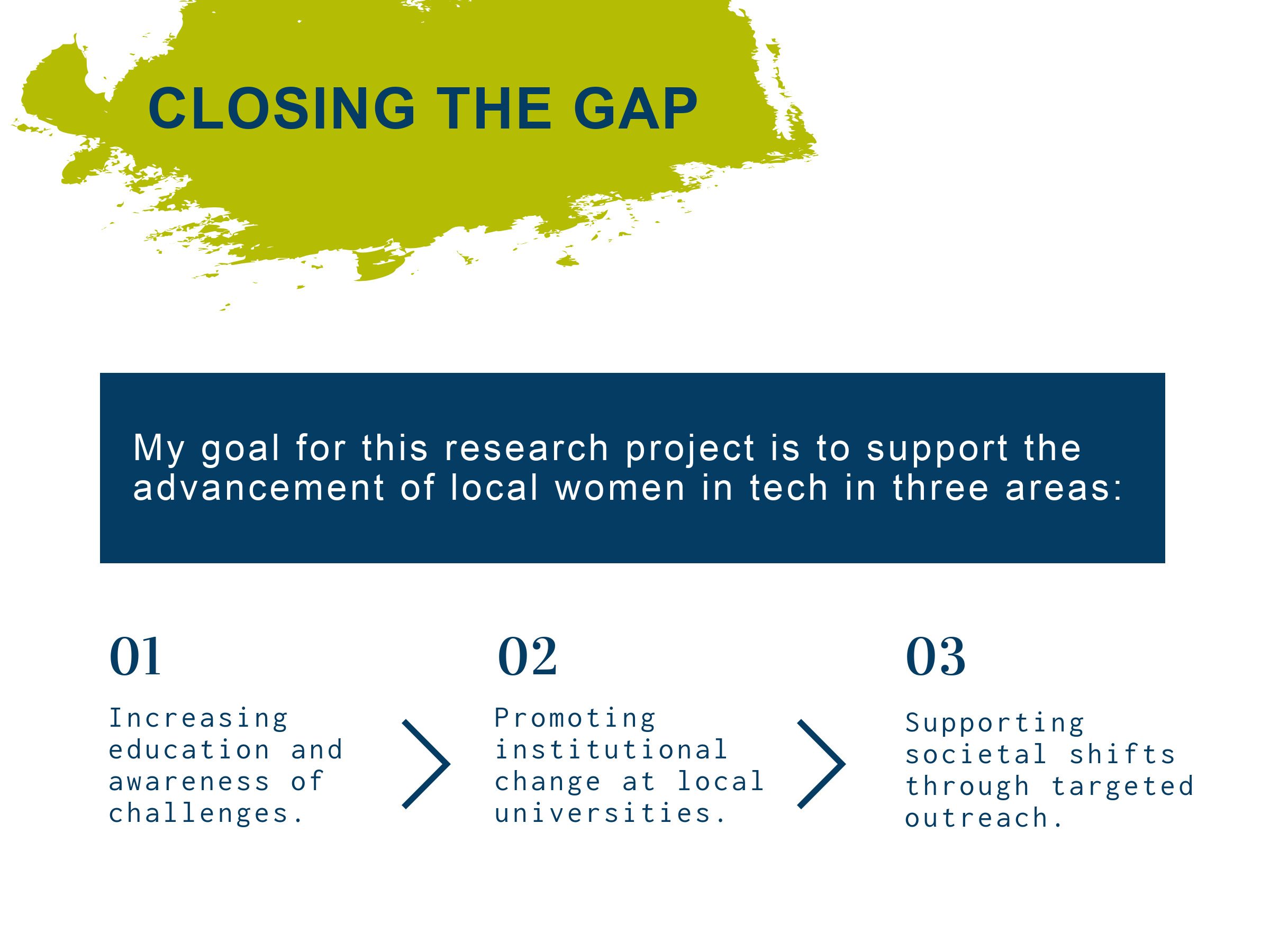I’m beyond excited to get to work on my project for the Women Innovators Fellowship! Research is a fascinating adventure where I get to learn about new topics, help solve problems, and present what I find in a way that is meaningful and motivating. I want to give a special shout out to the folks who have helped me develop my research skills along the way. I appreciate your time, support, and expertise. I am fortunate to be able to say that the Omaha community has supported me as a woman in tech for the past 5 years and I want to use my skills in research and analysis to give back and support other women in tech for years to come.
The Challenge
Exposure to technology is a first step, but we have longer to travel to build a strong tech talent pipeline with women from our community. Programs in the Omaha area, such as Girls Who Code and Mystery Code Society, work to bridge the gap between girls who know about tech/coding and girls who don’t by way of an introduction to the topic. However, there are no popular programs in our area that encourage those young women to stay in the technology field beyond girlhood.
In 1984, 37 percent of computer science majors were women. That percentage fell to 18 percent by 2014. Today, it stands at 16.5%. Consider college-age women right here in Omaha who have chosen computer science majors. What makes them choose computer science? What factors influence their decisions to remain in or leave their tech majors?
The Game Plan
Over the next six months, I will conduct a research study centered around 40 flagship interviews that will explore why local women choose to stay in or leave their computer science majors. I’ll take their perspectives and group them together to find themes that explain their choices. When those themes are uncovered, we can use them to create strategies to help the young women in our area persist in their tech tracks.
My aim is to deliver practical retention recommendations to local universities and stakeholders — recommendations that I hope will create value both for women technologists and employers seeking diverse tech talent. Diverse teams consistently outperform monoculture teams. Omaha’s ability to attract and retain diverse tech talent is better for business — and it’s the right thing to do.

First things first. To begin to understand the issues that affect college women in computer science, I first need to examine what research has already been done. I’ve compiled and am currently reading over 50 different studies that look at college women in computer science, both in local communities and across the US. By looking at what has been done before, we can try to fill in the gaps of knowledge we have on the topic and figure out how to close that gap and see which of the issues are most relevant to our community. From reading these prior studies, I’ll build my interview guide.
Let’s Talk
If you or someone you know is a woman 19 years or older, currently attending a 4-year university program in Omaha, and currently a computer science major or a past computer science major who switched away from tech, I would love to hear your story!
I’m not yet ready to interview participants, but I will be in the next month or so. Email dospaceresearch2019@sudomail.com to be added to the list to be contacted in the future.


